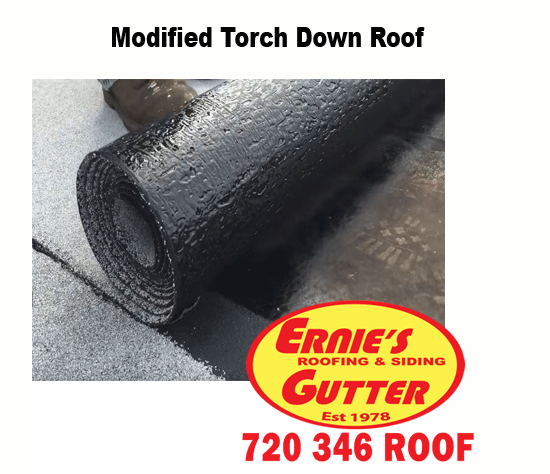Making the Right Decision for Your Home
When it comes to roof replacement, homeowners are faced with a crucial decision: should they take on the project themselves or hire a professional roof contractor? The choice can have a significant impact on the safety, durability, and value of your home. As a third-generation contractor with a legacy dating back to 1978, Ernie’s Roofing has witnessed the evolution of roofing techniques and trends. In this comprehensive guide, we’ll delve into the DIY vs. Roof Contractor debate, offering insights, tips, and real-life examples to help you make an informed decision for your roof replacement project.
Benefits of DIY Roof Replacement
Cost Savings: When Does Frugality Make Sense?
As a homeowner, you understand the value of a dollar. DIY roof replacement can be enticing due to its cost-saving potential. Imagine the pride of completing the project without hefty labor costs. However, remember that frugality should not compromise the quality of the work. If your skillset aligns with roofing, you can cut expenses without compromising on the result. For instance, if you’re experienced in home improvement, have the necessary tools, and are comfortable working at heights, tackling a simple shingle replacement might be a feasible endeavor.
Sense of Accomplishment: Building More than a Roof
The sense of accomplishment that accompanies a successful DIY roof replacement is undeniable. It’s a tangible testament to your skills and determination. However, be prepared for the learning curve. Roofing demands precision, attention to detail, and understanding of material properties. Consider whether you’re ready to invest time in learning these nuances.
Flexibility and Control: Master of Your Domain
DIY projects put you in the driver’s seat. You can tailor the project to your schedule and preferences. Want to experiment with roofing materials? Feel like working in the early morning? The choice is yours. This level of control is particularly appealing if you have an artistic vision for your roof’s aesthetics.
Drawbacks of DIY Roof Replacement
Safety Concerns: Risking More Than Just the Roof
Safety is paramount when working at heights. Roofing involves navigating steep slopes, unpredictable weather, and equipment handling. Professional contractors are trained to mitigate risks, using safety gear and protocols. As a homeowner, your well-being is the top priority. Before donning that tool belt, evaluate your comfort level with heights and the extent of safety measures you can implement.
Skill and Experience Required: More Than Meets the Eye
Roofing is deceptively intricate. It’s more than hammering shingles onto plywood. It involves understanding underlayment, flashing, and ventilation. A misplaced nail can lead to leaks, and poor ventilation can lead to premature deterioration. As a seasoned contractor, I’ve encountered DIY projects gone awry due to these oversights. If you lack experience, it might be prudent to consult professionals.
Time-Consuming and Labor-Intensive: The Clock is Ticking
A common misconception is that DIY projects are quicker. In reality, roofing requires meticulous planning and execution. Rushing can lead to mistakes that cost more to rectify than hiring a contractor initially. Consider your time availability. Do you have weekends to spare, or are you juggling work, family, and leisure?
Advantages of Hiring a Roof Contractor
Professional Expertise: From Apprentice to Authority
At Ernie’s Roofing, we’ve witnessed the transformation of novice roofers into seasoned experts. The journey involves apprenticeships, industry education, and on-the-job challenges. This expertise translates into efficient, high-quality work. Professional contractors understand roofing materials, techniques, and safety protocols inside out.
Time and Efficiency: Swift Solutions for Your Shelter
A roofing project that might take you weeks can be completed by professionals in days. This efficiency stems from experience. Contractors have a streamlined workflow, access to advanced equipment, and teams that specialize in different aspects of roofing. Your time is valuable; investing in a contractor saves not just days, but also the hassle of prolonged construction.
Quality Materials and Workmanship: Protecting Your Investment
Quality is the foundation of our legacy at Ernie’s Roofing. Professional contractors source premium materials and ensure they’re installed correctly. Proper installation directly impacts the lifespan and performance of your roof. When you hire a contractor, you’re not just getting a roof; you’re getting peace of mind.
Disadvantages of Hiring a Roof Contractor
Higher Costs: The Price of Professionalism
Professionalism comes at a cost. Hiring a contractor involves labor charges, insurance premiums, and a profit margin. However, remember that these costs are an investment in experience, quality, and expertise. A professionally installed roof can last decades, justifying the upfront expense.
Dependence on Contractor’s Schedule: Time Waits for No Shingles
Contractors have schedules influenced by weather conditions, ongoing projects, and team availability. Delays can occur due to unforeseen circumstances. Communication is key; discuss timelines and expectations before signing any contracts.
Potential for Disputes: A Solid Contract for a Solid Roof
Misunderstandings can mar even the most straightforward projects. A clear, detailed contract safeguards both parties. It outlines project scope, deadlines, materials, and payment terms. Prioritize transparency; reputable contractors like Ernie’s Roofing value client relationships and clear communication.
Factors to Consider When Deciding
Budget: Beyond Dollars and Cents
Your budget extends beyond immediate expenses. Consider long-term costs. DIY projects with errors might lead to pricier repairs down the line. Factor in tools you’ll need to purchase or rent. Sometimes, investing in a contractor from the start pays off in the long run.
Available Time: Balancing Acts
Evaluate the time you can realistically dedicate to the project. Roofing is time-sensitive; exposure to the elements can exacerbate damage. A hurried DIY project might result in subpar workmanship.
Personal Skillset: Measuring Expertise
Assess your expertise objectively. Roofing involves a myriad of skills beyond general handyman abilities. If you’re uncertain, consulting professionals for guidance is a wise move.
Extent of Roof Damage: A Closer Look
Severity matters. A minor leak might be a suitable DIY project. Extensive damage demands professional attention. Ernie’s Roofing has encountered instances where minor leaks ballooned into major structural issues due to inadequate repairs.
DIY Roof Replacement: Step-by-Step Guide
Safety Precautions: Secure Your Haven
Safety comes first. Invest in safety gear: harnesses, helmets, and non-slip footwear. The last thing you want is an accident on your rooftop.
Gathering Materials and Tools: The Right Arsenal
Having the right tools and materials is essential. Shingles, underlayment, nails, and tools like hammers, roofing nails, and utility knives are your companions.
Removing Old Shingles: A Delicate Dance
Removing old shingles requires care. A flat shovel or roofing shovel can help with this step. Exercise caution to avoid damaging the underlying structure.
Inspecting and Repairing Decking: Solid Foundation
Thoroughly inspect the roof deck. Replace any damaged sections. A stable deck is crucial for proper shingle installation.
Installing New Shingles: Precision Matters
Follow manufacturer guidelines for shingle installation. Proper alignment, nailing, and sealing are critical. Consider the local climate and choose appropriate materials.
Final Inspections: Diligence Pays Off
Inspect your work meticulously. Look for secure attachment, proper alignment, and thorough sealing. A well-done DIY project should rival professional work.
Hiring a Roof Contractor: What to Look For
Research and Recommendations: A Network of Trust
Ask friends, family, and neighbors for recommendations. Research online reviews and ratings. Reputable contractors like Ernie’s Roofing often have a trail of satisfied customers.
Licensing and Insurance: Covering All Bases
Ensure the contractor is licensed and insured. This protects you from potential liabilities and indicates their commitment to professionalism.
Written Estimates: Clarity in Black and White
Obtain written estimates from multiple contractors. Compare the scope of work, materials, and costs. Beware of extremely low estimates; they might indicate subpar work or hidden costs.
Portfolio and References: Assessing Quality
Review the contractor’s portfolio. Request references from previous clients. This gives you insights into their workmanship and reliability.
Comparing Costs: DIY vs. Contractor
Initial Expenses: A Matter of Perspective
DIY projects might seem cheaper initially. Consider the costs of tools, potential errors, and long-term consequences. Contractors offer value beyond immediate expenses.
Long-Term Considerations: Investing Wisely
A professionally installed roof provides peace of mind. It withstands the test of time and the elements. Avoid future repair costs by prioritizing quality from the outset.
Making the Decision: DIY or Roof Contractor?
Risk Tolerance: Balancing Safety and Savings
Evaluate your willingness to take on risks. DIY projects carry inherent risks; assess whether you’re equipped to manage them.
Project Complexity: The Skills You Need
Consider the complexity of your project. A minor repair might be within your capabilities, but extensive damage demands professional intervention.
Time Investment: Present and Future
Calculate the time you can realistically dedicate to the project. DIY projects often take longer than anticipated. Consider whether the extended timeline aligns with your needs.
Conclusion
The DIY vs. Roof Contractor dilemma boils down to your skillset, time availability, and the scope of your project. As a seasoned contractor, I emphasize the significance of quality, safety, and long-term value. Ernie’s Roofing has upheld these principles since 1978. Remember, the roof over your head protects more than just walls; it safeguards memories, comfort, and the future of your home.
Frequently Asked Questions (FAQs)
1. Can I save money by replacing my roof myself?
While DIY roof replacement might seem cost-effective initially, it can lead to mistakes that are more expensive to fix in the long run. Hiring a professional contractor ensures quality workmanship and lasting results.
2. How do I know if my roof needs replacement or just repairs?
Consult a roofing professional to assess the extent of damage. Minor issues can often be repaired, while extensive damage might necessitate a full replacement.
3. Are there any risks associated with DIY roof replacement?
Yes, DIY roof replacement carries risks such as accidents, improper installation, and voided warranties. Safety should be a top priority.
4. How can I choose the right roofing contractor?
Research contractors, read reviews, check licenses and insurance, and request written estimates. A reliable contractor like Ernie’s Roofing should provide references and showcase a strong portfolio.
5. What are the long-term benefits of hiring a professional contractor?
Professional contractors offer expertise, efficient work, quality materials, and proper installation. A professionally installed roof can last for decades, saving you money on repairs and replacements in the future.
For expert roofing advice and reliable services, contact Ernie’s Roofing at 720-346-ROOF. Let our third-generation legacy and experience guide you in making the best decision for your roof replacement project. Your home deserves nothing less than excellence.




